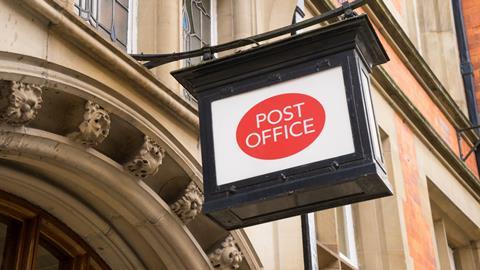A key solicitor witness in the Post Office Inquiry has been postponed due to continued issues with disclosure. The delay in hearing from former Post Office lawyer Jarnail Singh was announced in the same week it was revealed that the organisation has spent more than £24m on a disclosure process that has been beset with problems.
A freedom of information request from the Gazette to Post Office Limited revealed that the total spend on disclosure costs with external legal contractors from 1 January 2022 to 31 July 2023 was £24.4m.
Post Office general counsel Ben Foat said in July that 46 lawyers from Herbert Smith Freehills as well as at least five from Peters & Peters were working specifically on disclosure and remediation issues.
The Post Office revealed in the FoI response that nine of its lawyers were also advising the organisation on assisting the inquiry.
But despite such vast resources devoted to disclosure, the statutory inquiry into the Post Office scandal continues to be hit with delays in with making all relevant material accessible.
In July, a two-day hearing scheduled for the evidence of former Fujitsu engineer Gareth Jenkins was postponed after the Post Office wrote to the inquiry at 10.32pm the night before. The inquiry was told that 4,767 potentially relevant documents had not been disclosed, including one that was ‘likely to be of significant interest’.
Inquiry chair Sir Wyn Williams subsequently said that all future disclosure requests would carry a notice with a threat of a criminal sanction if they were not carried out.
But the problems did not end there. Last week, hearings from two significant witnesses were postponed after more late-night correspondence from the Post Office, this time explaining that internal emails post-2012 had not been traced after a change in server at that time. Inquiry counsel Jason Beer KC said the total scale of the issue was not even known, but an estimated 22,000 emails needed to be assessed.
Addressing the inquiry on Thursday, Williams confirmed that hundreds of documents were due to be disclosed in the coming days relating to Singh and Jenkins, whose appearance had been rescheduled for this month.
In the case of Jenkins, Williams said the Post Office had disclosed 3,045 new documents and the inquiry would need to process those and then disclose them. He therefore said it may be some months before Jenkins appears to give evidence, adding: ‘That is a source of frustration to me. I’m sure it will be a source of frustration to many core participants, and perhaps a source of frustration to Mr Jenkins himself.
‘But I think everyone who has followed this Inquiry will appreciate that it is crucial that Mr Jenkins’ evidence is heard with the benefit of all documents which is relevant to that evidence.’
In September, Herbert Smith Freehills partner Gregg Rowan revealed that first-level document reviews had been made by unqualified law graduates, supervised by lawyers, based in Belfast, Johannesburg and latterly Melbourne.
Rowan said these legal analysts conducted linear reviews of documents that are batched to them in sets of 50. ‘They’re encouraged to look at families in order to determine the relevance of the document they’re actually looking at,’ he told the inquiry. ‘Typically, the documents that are identified at first-level review as being relevant are then reviewed by lawyers, principally based in London, almost exclusively based in London.’































